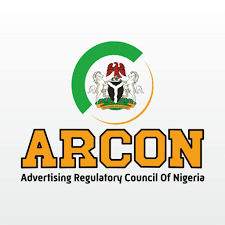The Federal High Court in Lagos has delivered a landmark judgment that significantly reshapes the advertising landscape in Nigeria. The court unequivocally affirmed the Advertising Regulatory Council of Nigeria’s (ARCON) sweeping authority to regulate all advertising content, regardless of the platform used or the advertiser’s status. This ruling, a resounding victory for ARCON, stems from a lawsuit challenging the Council’s jurisdiction, particularly over digital advertising and non-registered practitioners. The court’s decision clarifies ARCON’s regulatory scope and establishes a new paradigm for advertising compliance in the country.
The legal challenge arose from a case filed by Digi Bay Limited (operating as Betway Nigeria), Super Group Limited, and Otunba Kunle Olamuyiwa against the Attorney General of the Federation and ARCON. The plaintiffs sought judicial interpretation of ARCON’s regulatory reach, specifically questioning its authority over digital advertising and individuals not registered as advertising practitioners. Justice Aluko, presiding over the case, delivered a decisive ruling in favor of ARCON, asserting that the Council’s statutory powers extend to all forms of advertising, irrespective of the platform or the advertiser’s professional registration status. The court underscored that the nature of the activity – advertising – is the determining factor, not the individual’s or entity’s registration status.
The court’s decision has far-reaching implications, particularly for digital advertising. Justice Aluko explicitly stated that social media platforms like Instagram, despite being privately owned, are public channels used for mass communication and therefore fall under ARCON’s regulatory purview. This clarification addresses the increasing prevalence of advertising on social media and underscores the need for regulatory oversight to maintain ethical standards and protect consumers. The ruling clarifies that all advertising content, regardless of origin, must be vetted and approved by ARCON before public dissemination, firmly establishing the Council’s role as the gatekeeper of ethical advertising in Nigeria.
While ARCON possesses the authority to issue violation notices and infraction letters, the court clarified that the power to impose penalties resides solely with the Advertising Offences Tribunal. This distinction reinforces due process and ensures that punitive measures are implemented through a designated legal channel, while maintaining ARCON’s role in enforcing ethical advertising practices. This division of responsibility strengthens the regulatory framework and provides a clear pathway for addressing advertising violations.
The judgment is a significant legal triumph for ARCON, particularly following its transition from the Advertising Practitioners Council of Nigeria under a new legal framework that broadened its mandate. It resolves longstanding ambiguities surrounding the regulation of the rapidly evolving digital advertising landscape and strengthens ARCON’s ability to uphold industry standards. The ruling unequivocally signals a new era of advertising regulation in Nigeria, where compliance with ARCON’s guidelines is no longer optional but a legal obligation across all media platforms.
This legal precedent has profound implications for various stakeholders in the advertising ecosystem. Influencers, content creators, brands, and advertisers must now recognize that compliance with ARCON regulations is mandatory. This shift underscores a new level of accountability and necessitates a proactive approach to ensuring all advertising content adheres to established ethical guidelines. The ruling is poised to significantly impact advertising practices in Nigeria, fostering a more regulated and accountable industry.














